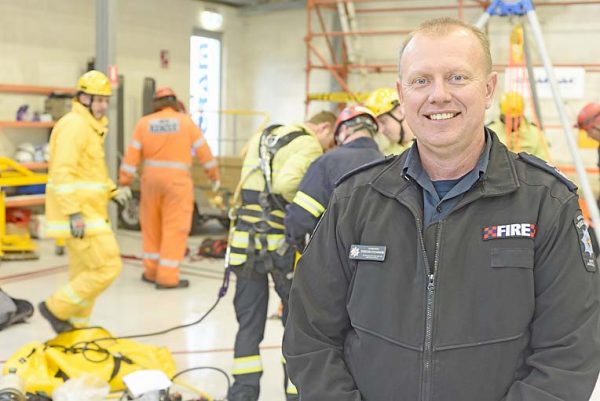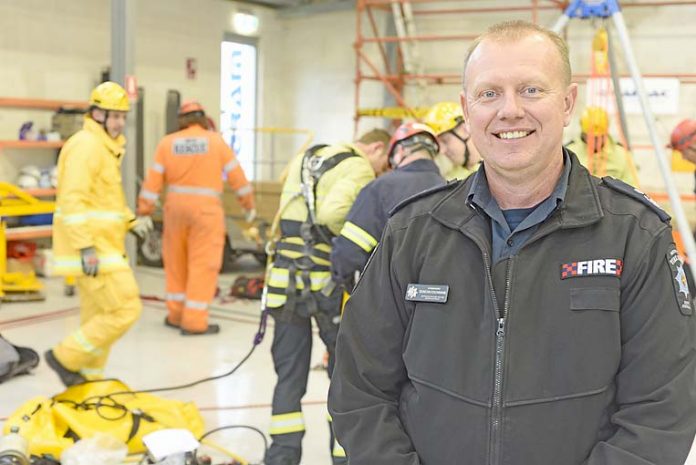
FIRST responders in the Limestone Coast are currently undertaking intense urban, search and rescue training to bring their skillsets in line with universal standards.
The 13-day first responder and regional cache program started on Thursday and is being delivered by the South Australian Urban Search and Rescue Taskforce (SAUSARTF) to select emergency service staff and volunteers across the region.
The taskforce delivers a standardised technical rescue and disaster response capability to local, state and national emergency management authorities when resources are overwhelmed or in need of specialist equipment and skillsets.
This particular program aims to enhance the skillset of regional emergency service first responders from all agencies in several technical rescue disciplines.
Metropolitan Fire Service operational training and technical rescue Commander Duncan Cochrane was overseeing the first day of physical training at Gramac Solutions on Friday.
“This was planned for a long time but it was put on hold because of COVID-19 and we had to throw it all back together really quickly when restrictions eased,” he said.
“We have members from all agencies involved and it has just been fantastic and this facility is great for what we are doing,” he said.
Friday’s training involved confined space training where responders were required to retrieve three casualties from an underground scenario.
Mr Cochrane said the real-life scenarios aimed to cover a range of specialist roles that support the USAR Technicians.
“This training puts there quick problem-solving to the test while also giving them an opportunity to use the new equipment,” Mr Cochrane said.
“The USAR skillset is at the top end and it’s great to see this training coming into regional areas now to enhance the agencies in these areas.”
He said the training would break down the boundaries between the emergency service agencies.
“It makes them more familiar with what each other can and cannot do because you cannot have one individual, or one group with all the expertise because they might not be available,” he said.
Highlighting examples of when the training would be beneficial, Mr Cochrane said a USAR technician was involved in the incident where a man crashed his car into the Blue Lake in 2018.
“The skillset he had gained through this training very much enhanced the response for all the agencies that were there at that incident,” he said.
“The Scotch College bus crash was another example of an incident where these skillsets are best utilised, because it is a mass casualty situation.”
In addition to the training, the region will now have a regional cache housed at the MFS station, which holds a range of specialist equipment.
The cache is available for any agency to request when responding to technical rescue incidents.








